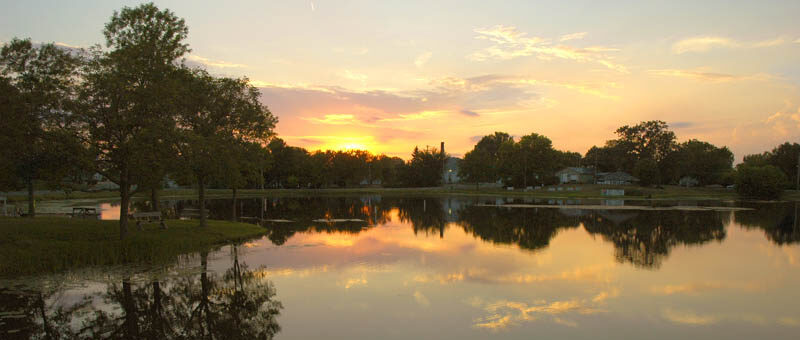
By Kelly Asche, Research Associate
I still remember the moment my wife and I decided to move out of the Twin Cities and back to rural Minnesota. We were sitting at the same St. Paul bar we had been frequenting for years, discussing what we wanted in life. And we realized that that’s what we do – despite all the options available to us in the metro area, we always went to the same restaurants, bars, coffee shops and grocery stores. We had both grown up in small towns, and ultimately, while living in St. Paul for ten years, we had simply created our own little small town.
We decided that day that we wanted life to be a bit simpler, with fewer distractions and focused more on what makes us happy – being outdoors, quiet spaces, and a slower pace that allowed us time to reflect on life. So, at the age of 30 we decided to leave the big city.
Of course, we had our reservations. There were so many things we didn’t think we could “live without.” But surprisingly, over the several years of living in rural Minnesota, all the things we thought we couldn’t live without somehow became not so important.
We didn’t think we could live somewhere with such limited restaurant options, but we just learned how to cook our favorite foods ourselves. And my wife started her own food blog.
We didn’t think we could live somewhere without an extensive bike trail system, but now we use county roads, and riding 100 to 200 miles per week is common.
We didn’t think we could live somewhere without a vibrant live music scene, but now I help book bands at the local theater and bring bands to town that I want to see.
And I guess that’s the primary advantage I’ve found with living in rural Minnesota: the opportunities and ability to be involved, create, and make change in the community.
We chose New London, about two hours west of Minneapolis, for our new home, and since we moved here, a brewery and local farm-to-table restaurant have opened, a used book store in the coffee shop has been incredibly successful, and friends of ours have taken over the local theater to develop artistic programming in the community.
If you ask any of us involved what the difference is creating and place-making here versus a more metropolitan area, we would all respond that it’s just not as “high-stakes.” The competition, high start-up costs, and the large amount of capital needed are significantly lower out here. In addition, there’s more of a community spirit in the ventures. No one is going to make large amounts of money in any of these activities, but at least we are enjoying our time and getting experience making real change in a community.
And doing all of this has provided me the experience and space to realize aspects about myself. I found out how important “space” is to me. I grew up on the prairie, and it never occurred to me until I had been away for a while how unique that peace and openness that only the prairie can provide really is.
I also realized the importance the outdoors has on my outlook on life. Biking on county roads for half a day just listening to the wind and the birds, kayaking down lazy rivers, taking in the wildlife and the buzz of insects, swimming in every lake I can find, and being able to stop at any of the publicly owned lands to just sit and read are now my “can’t-live-without” aspects of living.
And most importantly, I have come to understand that a healthy ratio of people to space for me is closer to 0:1 than I may have expected when I was younger, when being a part of a “scene” was of importance. High-density living comes with a lot of amenities that one doesn’t have access to out here. But for some of us, high-density living also comes with way too much people-induced stress, inconvenience, and overall craziness that does not suit our well-being. I would much rather think about how to keep the local woodchuck population out of my garden than figure out how to navigate traffic.
Overall, do I think living in rural Minnesota is better than living in metropolitan areas? No, I don’t. But I know it is for me.
